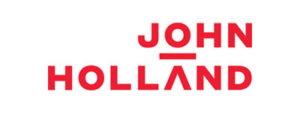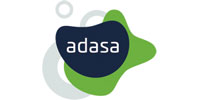The 2022 ANCOLD NZSOLD Conference reserves the right to amend or alter any advertised details relating to dates, program and speakers, if necessary, without notice, as a result of circumstances beyond their control. All attempts will be made to keep any changes to an absolute minimum.
Preliminary Program
| PRE-CONFERENCE WORKSHOP | |
| Parkside Foyer |
|
| 0730 – 1800 | Registration Desk Opens With thanks to our Satchel, WiFi, Conference App, Electronic Handbook & Name Badge sponsors      |
| Parkside 1 | |
| 1000 – 1600 | Exhibition Opens With thanks to our Barista Cart & Charge Bar sponsors   |
| C3.2 | |
| 0730 – 1700 | Speaker Preparation Room Upload your slides at least 2 hours prior to your presentation. |
| WORKSHOP Cockle Bay 1 & 2 |
|
With thanks to our sponsor |
|
| 0830 – 1000 | DSEP Guidelines
Siraj Parera, Department of Environment, Land, Water and Planning VIC Presentation of the key themes of the guideline and the matters that require resolution. The key themes cover: • Protecting the community, This will give delegates a good feel for what is covered by the guideline. |
| 1000 – 1030 | Morning refreshments – Parkside 1 |
| 1030 – 1200 | DSEP Guidelines (Continued)
An interactive workshop session with the dams industry to consider the following broad topics which will help inform the resolution of outstanding matters: • Guideline structure |
| 1200 – 1300 | Lunch – Parkside 1 |
| MASTERCLASSES Cockle Bay 1 & 2 |
|
With thanks to our sponsor |
|
| 1300 – 1430 | ANCOLD Earthquake Guidelines
Steve O’Brien, AECOM Navigating the ANCOLD Earthquake Guidelines and Implications of NSHA18: • Discussion on Risk Based and Standards based approaches |
| 1430 – 1500 | Afternoon refreshments – Parkside 1 |
| 1500 – 1600 | Erosion of unlined spillways – where is it all at?
Steven Pells, Pells Consulting The masterclass presents a framework for assessment of erosion of unlined spillways. A summary of currently available methods is presented along with guidance on their use and efficacy. The masterclass is structured to clarify three questions that are commonly asked:
The masterclass is presented by Dr Steven Pells. Steven completed his PhD on the subject of spillway erosion in 2016 and has since been actively involved in the dams industry, with particular focus on spillway erosion issues in Australia and abroad. |
| WELCOME RECEPTION Hosted by ANCOLD Young Professionals |
|
With thanks to our sponsor |
|
| 1830 – 2030 | Venue: Cockle Bay Wharf, Darling Harbour
A 10-minute walk from our conference venue will have you at Cockle Bay Wharf, Darling Harbour where the evening’s hosts, the ANCOLD Young Professionals, will greet you with a warm welcome, setting the scene for a great night and conference days to come. |
| TECHNICAL PROGRAM |
|||
| Parkside Foyer |
|||
| 0800 – 1730 | Registration Desk Opens With thanks to our Satchel, WiFi, Conference App, Electronic Handbook & Name Badge sponsors      |
||
| Parkside 1 | |||
| 0800 – 1530 | Exhibition Opens With thanks to our Premium Lounge, Barista Cart, Coffee Cart, Refreshment Breaks & Charge Bar sponsors     |
||
| C3.2 | |||
| 0730 – 1700 | Speakers Preparation Room Upload your slides at least 2 hours prior to your presentation |
||
| PLENARY Cockle Bay 1 & 2 |
|||
| 0900 – 0915 | Welcome to Country | ||
| 0915 – 0935 | Official Opening
Welcome Chairman’s Address |
||
| 0935 – 1015 | Opening Keynote
Introduced by: ANCOLD Chairman, Michel Raymond An International Perspective of Change for Safe and Sustainable Dams Michael Rogers Honorary ICOLD President Michael F Rogers (Stantec Global Practice Leader for Dams) offers an international perspective of change – ongoing and future – for the safe and sustainable development of dams and hydropower. Mr Rogers is a Civil Engineer, Vice President and Senior Project Manager at Stantec with 40 years of experience in engineering for dams and hydropower. Recently completing a seven year mandate on the Board for the International Commission on Large Dams (ICOLD), including four years as ICOLD President, he will offer his experience, observations, and expectations for the dams and hydropower industry regarding key influential factors for sustainability, including dam safety, climate change, collaboration of renewables, changing work force, and the role of professional societies. Q&A |
||
| 1015 – 1100 | Morning Refreshments – Parkside 1 |
||
| 1100 – 1220 | Risk Informed Frameworks Session Chair: Angus Swindon |
Sustainable Management 1 Session Chair: Dewi Knappstein |
New Technology 1 Session Chair: Kaley Crawford-Flett |
| Cockle Bay 1 | Cockle Bay 2 | C3.3 | |
With thanks to our Sustaining Member |
With thanks to our Sustaining Member |
With thanks to our Sustaining Member |
|
| The Bureau of Reclamation approach to risk analysis and risk informed decision making – past successes, current challenges, and future direction
Dom Galic |
Saving Time and Better Managing Dam Safety Risks with Automated Monitoring
Craig O’Neill |
Numerical modelling of transverse cracking in embankment dams
Ke He |
|
| Application of the SFAIRP principle to a diverse portfolio of dams
Mark Pearse |
Do you trust your data? – A framework for assessing asset portfolio data health, data gaps, and robustness
Lyndon Johnson |
Strain and Crack propagation Analysis in Embankment Dam
Stephen Chia |
|
| Implementing risk-informed decision-making and ALARP
Barton Maher |
Resonance Acoustic Profiling (RAP) – A helpful and complimentary tool for mapping seepage through, beneath and around dams
Mitchell Green |
Extension Strains in Embankment Dams and the Potential for Development of Transverse Cracks
Cameron Purss |
|
| A New Comprehensive Risk Analysis Software, RMCTotalRisk
Haden Smith |
Do you Give a Dam? Insurance Considerations for Dam Portfolios
Chris Topham |
 Finite Element Analysis of an Embankment Dam with 60 Yrs Monitoring Data Joshua Chan |
|
| A structured approach to prioritisation of risk control measures across a portfolio of dams
Mark Pearse |
AI for Dam Safety Monitoring
Mohsen Askari |
 Innovative solution allowing the use of challenging earthfill materials Daniel Jirik |
|
| The limitations of and apparent disconnect between standards based and risk assessment acceptance criteria for concrete gravity dams
Robin Fell |
Rugged, wireless, lowpower devices for keeping tabs on your dams
Philip Winter |
How digital inspections and AI – Deep Learning algorithms can enhance knowledge, reduce risk and carbon emission
Eric Audigé |
|
| 1220 – 1230 | Q&A | Q&A | Q&A |
| 1230 – 1330 | Lunch – Parkside 1 |
||
| 1330 – 1450 | New Guidelines Session Chair: Andrew Reynolds |
Sustainable Management 2 Session Chair: Winsome Whyte |
New Technology 2 Session Chair: Paul Maisano |
| Cockle Bay 1 | Cockle Bay 2 | C3.3 | |
With thanks to our Sustaining Member |
With thanks to our Sustaining Member |
With thanks to our Sustaining Member |
|
| Earthquake Guidelines and Intake towers: Small Shortcomings with Serious Implications
Francisco Lopez |
WaterNSW Analysis of Dam Safety Alert Triggers for Warragamba Dam
Damien Bryan |
 Remote sensing technology for dam design and prototype monitoring Laura Montano |
|
| Impact of new industry guidelines and new seismic hazard knowledge on seismic hazard assessments for dams in Australia and New Zealand
Paul Somerville |
Evidence-based insights for effective dam failure communication
Amisha Mehta |
 Giving More Weight to Severity of Damage and Loss Elise McQuilten |
|
| Towards new industry guidelines for emergency draw down for Australian dams
Marius Jonker |
Application of Non-Contact Hydrometric Gauging and R Programming to Flood Warning System Design – Arnold Dam Strengthening Project
Thomas Jamieson-Lucy |
 Nonlinear seismic sliding stability of the Mt Bold Dam Safety Upgrade – An approach for arch dams Sam Lalli |
|
| A comprehensive operational risk assessment framework for dam systems
Richard Mannix |
Beyond 100% is meaningless and unsustainable for public communications on the flood status of dams
Michel Raymond |
Shear strength of bonded and unbonded concreterock contact for dam stability assessment – Statistical analysis of gathered in-situ and laboratory tests data
Mahdi Zoorabadi |
|
| What we see is not always dam true: Discovery of buried features
Polly Guan |
Roles and responsibilities in the identification, management and emergency response to failure of small dams
Chris Nielsen |
Defensive CFRD Embankment Design using Dirty Rockfill in a High Seismicity Environment – Waimea Dam
Brian Benson |
|
| Structural considerations for Anchoring of energy dissipation structures
Maz Mahzari |
Dam Safety Emergency Planning: A Digital Mobile Application
Arezoo Farhadi |
Risk and ALARP Assessment for Upper Yarra Embankment Upgrade Selection
Gavan Hunter |
|
| 1450 – 1500 | Q&A | Q&A | Q&A |
| 1500 – 1545 | Afternoon Refreshments – Parkside 1 |
||
| PLENARY Cockle Bay 1 & 2 |
|||
| 1545 – 1625 | Keynote Speaker
Introduced by: NZSOLD Chairman, Dan Forster Infrastructure Sustainability: Building towards a better future Infrastructure is more than just the roads we drive on, the trains we ride on or the utilities that provide us essential services. Infrastructure connects us as humans, communities, and society. It is within and part of the environment, and it drives significant economic benefits. Ensuring that we are building our future successes, livelihoods and environment for the future requires an eye to sustainability. Owen will be joining us from the Infrastructure Sustainability Council, the industry peak body sustainability, to discuss the importance of incorporating quadruple bottom line (environmental, economic, social, governance) into the planning, design, construction, and operations of assets through their entire lifecycle. In a “climate of change” sustainability is one of our most significant challenges. Can we deliver what we need to for a better future? Owen Buckley After 15 years working across state and Commonwealth government, Owen joined the ISC in 2022 in the role of General Manager, Ratings and Delivery. Owen brings extensive experience in the public sector across interpretation and application of complex legislation, international stakeholder relationship building, enhancing organisational capability, and building and empowering high performing teams. Q&A |
||
| 1625 – 1655 | Plenary Presentation
Introduced by: ANCOLD Chairman, Michel Raymond Lessons learned from the Queensland Floods Class Action Kione Johnson Q&A |
||
| 1655 – 1700 | Close of Day 1 |
||
| CONFERENCE DINNER |
|||
With thanks to our Sponsor |
|||
| 1830 | Venue: Doltone House, Darling Harbour
A spectacular waterfront venue housed in NSW’s first 6-star green star building with views of Sydney Harbour and the city skyline. A 20-minute walk from the conference venue. |
||
| TECHNICAL PROGRAM | |||
| Parkside Foyer |
|||
| 0800 – 1830 | Registration Desk Opens With thanks to our Satchel, WiFi, Conference App, Electronic Handbook & Name Badge sponsors      |
||
| Parkside 1 |
|||
| 0800 – 1530 | Exhibition Opens With thanks to our Premium Lounge, Barista Cart, Coffee Cart, Refreshment Breaks & Charge Bar sponsors     |
||
| C3.2 | |||
| 0730 – 1700 | Speaker Preparation Room Upload your slides at least 2 hours prior to your presentation. |
||
| PLENARY Cockle Bay 1 & 2 |
|||
| 0900 – 0905 | Welcome to Day 2 Conference Convenor: Sam Banzi |
||
| 0905 – 0945 | Keynote Speaker
Introduced by: ANCOLD Chairman, Michel Raymond The implications of climate change for dam owners Climate change is impacting on water availability and floods, and this is changing the way dams are operated, designed, and managed. The nature of the evidence available to inform decisions and their associated uncertainties is also changing, and this has implications for we assess risks and plan for the future. Dr Rory Nathan Professor Rory Nathan is a hydrologist who has spent the majority of his career working in the private and public sectors. For the past eight years he has divided his time between academia, private consulting, and on expert review and advisory roles for legal inquiries and the federal government. His research at the University of Melbourne is focussed on assessing the impacts of climate change and variability on engineered and environmental systems. Q&A |
||
| 0945 – 1025 | Keynote Speaker
Introduced by: NZSOLD Chairman, Dan Forster Public Decision-making in Risky Settings In this talk, I will review the conventional approaches used within governments and in the economics discipline to deciding how to allocate scarce resources across competing priorities in risky settings, and the political difficulties that arise due to the discomfort of the public about these approaches. Using Covid policy-making as an extended example of policymaking in a risky scenario, I explain how policymakers created policies that carried massive risks but nonetheless were swallowed whole by most of the public in Australia, as was the case in most of the democratic West. Reflecting on this recent disaster, I will comment upon morally and empirically defensible ways to proceed in the practical allocation of scarce resources to risky alternatives (e.g., whether to spend an extra dollar on reducing risk in a given project), and considerations about optimal public-facing messaging about the project, both ex-ante and ex-post in the event that a negative outcomes does materialise. Gigi Foster Gigi Foster (Professor, UNSW School of Economics; BA Ethics, Politics and Economics, PhD Economics) works in diverse fields including education, social influence, time use, lab experiments, behavioural economics, and Australian policy. Named 2019 Young Economist of the Year by the Economic Society of Australia, she publishes in both specialised and cross-disciplinary outlets, and her innovative teaching was awarded a 2017 Australian Awards for University Teaching (AAUT) Citation for Outstanding Contributions to Student Learning. She has filled numerous roles of service to the profession and engages heavily on economic matters with the Australian community as one of Australia’s leading economics communicators. Her regular media appearances include co-hosting The Economists, a national economics talk-radio program and podcast series, on ABC Radio National. She is the author most recently of The Great Covid Panic (Brownstone Institute 2021, with Paul Frijters and Michael Baker) and Do Lockdowns and Border Closures Serve the “Greater Good”? (Connor Court 2022, with Sanjeev Sabhlok). Q&A |
||
| 1025 – 1100 | Morning Refreshments – Parkside 1 | ||
| 1100 – 1205 | Hydropower and Mixed Use Dams Session Chair: Colleen Baker |
Tailings Dams Session Chair: Niki Harandi |
New Technology 3 Session Chair: Brian Benson |
| Cockle Bay 1 |
Cockle Bay 2 | C3.3 | |
With thanks to our Sustaining Member |
With thanks to our Sustaining Member |
With thanks to our Sustaining Member |
|
 Tube Fishways: A New Fishway in the Pipeline for Large Dams Nicholas Ostrovsky |
Designing tailings dams for closure
David Williams |
New calibration method to improve extreme flood estimates
Tim Rhodes |
|
 Determining the feasibility of a new pumped hydro project, using an existing dam and reservoir Beth Scott & Rebecca Dew |
New insights for tailings dam monitoring using ambient noise interferometry
Susanne Ouellet |
Understanding flood behaviour in large dam storages using 1d/2d coupled mike flood hydraulic model – a case study on Burrendong dam
Gurmeet Singh |
|
| A Pacific Island Case Study for a Multi-Purpose Dam
Richard Herweynen |
 Risk and conformancebased tailings management: Two-sides of the same coin Ryan Singh |
Considerations on the use of forecast rainfall for dam operations
Phillip Jordan |
|
| Repurposing Existing Storages for Pumped Hydropower
Mark Locke |
 Tailings Management Systems – The missing link Benjamin Cook |
Recent case histories of underwater rehabilitation with geomembranes: in still water and in flowing water
Alberto Scuero |
|
| Assessment of Long-Term Erosion Damage in Pukaki Dam Spillway Stilling Basin
David Menendez Aran |
Unusual design change midstream to mitigate risk of static liquefaction for a tailings dam
Malcolm Barker |
 The impact of hydraulic model resolution on potential loss of life assessments and flood extents Yue Shen |
|
| 1205 – 1215 | Q&A | Q&A | Q&A |
| 1215 – 1330 | Lunch – Parkside 1 |
||
| 1230 | Young Professionals Networking Lunch – Cockle Bay Foyer With thanks to our Sponsor  |
||
| 1330 – 1435 | Climate Change Session Chair: Ramon Strong |
Sustainable Management 3 Session Chair: Jennifer Rickaby |
Sustainable Management 4 Session Chair: Matt Shore |
| Cockle Bay 1 |
Cockle Bay 2 | C3.3 | |
With thanks to our Sustaining Member |
With thanks to our Sustaining Member |
With thanks to our Sustaining Member |
|
 Solar panels on reservoirs Leandro Flach |
Understanding Consequences Through LifeSim
Woodrow Fields |
Are Dam Safety Reviews really necessary to confirm the adequacy of the design, operation and maintenance of a major dam
David Ryan |
|
| Climate Change Analysis for USACE Dam Modification Studies
Brian Francis |
 Assessing and improving uncertainty in Dam Emergency Response Planning using HEC-LifeSim Elizabeth Saunders |
Application of Risk Analysis to evaluate Freeboard for an Extreme Consequence Category Tailings Facility
Malcolm Barker |
|
| Assessment of Climate Change Impacts to a Large Dam in Vietnam
William Veale |
The 2022 floods in SouthEast Queensland
Chris Nielsen |
 Novel use of plastic concrete for coffer dam construction Sasha Longo |
|
| The effect of a changing climate on dam safety – changing design flood hydrology
Ryan Gray |
Is RCEM dead?
Adam Broit |
 Cleaning of Concrete Dam Foundation Relief Drains – A Case Study of Mahinerangi Dam Ross Campbell |
|
| 1435 – 1445 | Q&A | Q&A | Q&A |
| 1445 – 1515 | Afternoon Refreshments – Parkside 1 |
||
| PLENARY Cockle Bay 1 & 2 |
|||
| 1515 – 1615 | Conference Close, Awards and Presentations
Facilitated by: ANCOLD Chairman Young Professional Best Paper Award Launch of ANCOLD 2023 |
||
| 1615 – 1730 | ANCOLD AGM | ||
| END OF CONFERENCE DRINKS Cockle Bay Foyer |
|||
With thanks to our Sponsor |
|||
| POST-CONFERENCE TECHNICAL TOURS | |
| 0800 – 1700 | Where: Warragamba Dam Cost: $180pp (price includes coach transport and all meals/snacks) A one-day conference tour will be held on the weekend immediately following the Technical Conference. Departing Saturday morning from the ICC at 8.00am, this tour is a full day visit to Warragamba Dam, including technical presentations on recent investigations and tours of the Visitor Centre and the Dam. Includes morning tea, lunch and afternoon tea. The coach will return to ICC Sydney via a stop at the Sydney Airport at approximately 5pm for those wishing to fly home that evening. With thanks to our refreshment breaks sponsor  |

